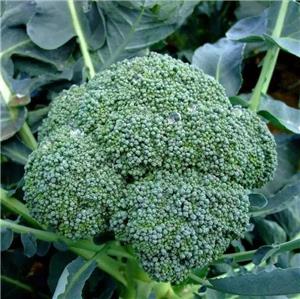-
2403-2021
Water, Sanitation and Hygiene: closing the gap to end neglected tropical diseases
22 March 2021-Today, on World Water Day, the World Health Organization (WHO) released its strategy on water, sanitation and hygiene as part of joint efforts by the water, sanitation and hygiene (WASH) and the neglected tropical diseases (NTD) sectors towards ending these diseases over the next decade.
-
1803-2021
WHO statement on AstraZeneca COVID-19 vaccine safety signals
Some countries in the European Union have temporarily suspended use of the AstraZeneca COVID-19 vaccine as a precautionary measure based on reports of rare blood coagulation disorders in persons who had received the vaccine. Other countries in the EU – having considered the same information - have decided to continue using the vaccine in their immunization programmes.
-
1203-2021
Third meeting of the WHO Nutrition Guidance Expert Advisory Group (NUGAG) Subgroup on Policy Actions
The WHO Department of Nutrition and Food Safety (NFS), through the work of the Nutrition Guidance Expert Advisory Group (NUGAG) Subgroup on Policy Actions, is providing evidence-informed WHO guidance on effective policy measures to support Member States in developing enabling food environment to promote healthy diets and nutrition. Priority policy measures include nutrition labelling policies, policies to restrict marketing to children, fiscal and pricing policies, and school food and nutrition policies.
-
1210-2021
WHO’s 10 calls for climate action to assure sustained recovery from COVID-19
Countries must set ambitious national climate commitments if they are to sustain a healthy and green recovery from the COVID-19 pandemic. The WHO COP26 Special Report on Climate Change and Health, launched today, in the lead-up to the United Nations Climate Change Conference (COP26) in Glasgow, Scotland, spells out the global health community’s prescription for climate action based on a growing body of research that establishes the many and inseparable links between climate and health.
-
1110-2021
WHO report highlights global shortfall in investment in mental health
World misses most 2020 mental health targets; extension of WHO Mental Health Action Plan to 2030 provides new opportunity for progress
-
2909-2021
Papua New Guinea steps up efforts to eliminate lymphatic filariasis
MDA is needed to reduce infection in the community to levels below a threshold at which mosquitoes are unable to continue spreading the parasites from person to person, and new infections are prevented. WHO recommends the transmission assessment survey (TAS) to determine when infections have been reduced below these target thresholds and MDA can stop. Once MDA has stopped, TAS is used as a surveillance tool to determine that infection levels are sustained below target thresholds.
-
2809-2021
Safe abortion in the context of COVID-19: partnership, dialogue and digital innovation
As the pandemic continues to challenge health systems capacity for delivering essential services, International Safe Abortion Day is an opportunity to celebrate global efforts to protect ongoing provision of comprehensive abortion care.
-
2609-2021
Cholera
Cholera is an acute diarrhoeal infection caused by eating or drinking food or water that is contaminated with the bacterium Vibrio cholerae. Cholera remains a global threat to public health and is an indicator of inequity and lack of social development. Researchers have estimated that every year, there are 1.3 to 4.0 million cases of cholera, and 21 000 to 143 000 deaths worldwide due to the infection.
-
2409-2021
On new recommendation for treatment of COVID-19 patients: WHO calls for equitable access to casirivimab and imdevimab for COVID-19
The World Health Organization (WHO) welcomes the addition of another therapeutic to the world’s arsenal against COVID-19, but urges producing companies and governments to address the high price and limited production of the Regeneron antibody combination and ensure safe and appropriate handling of the medicine.
-
2209-2021
WHO calls on world leaders at the UN General Assembly to focus on vaccine equity, pandemic preparedness, and getting the SDGs back on track
WHO is urging leaders attending the 76th session of the United Nations General Assembly (UNGA) to guarantee equitable access to COVID-19 vaccines and other life-saving tools; ensure the world is better prepared to respond to future pandemics; and renew efforts to achieve the Sustainable Development Goals (SDGs).




